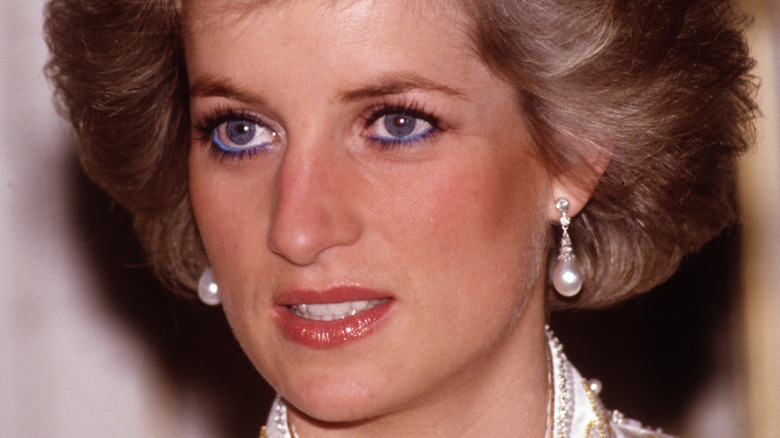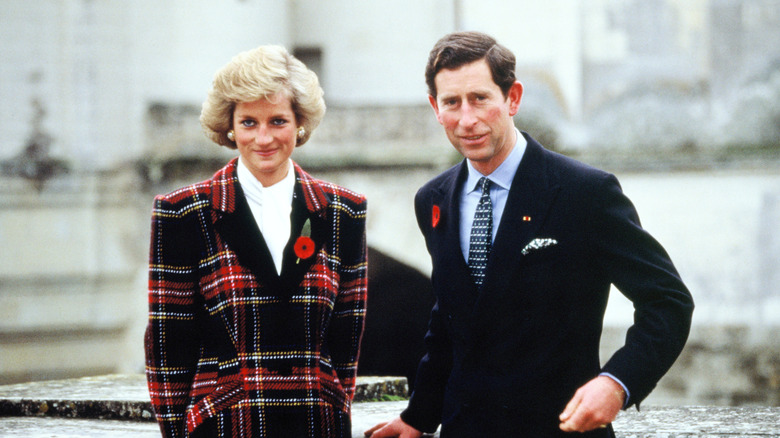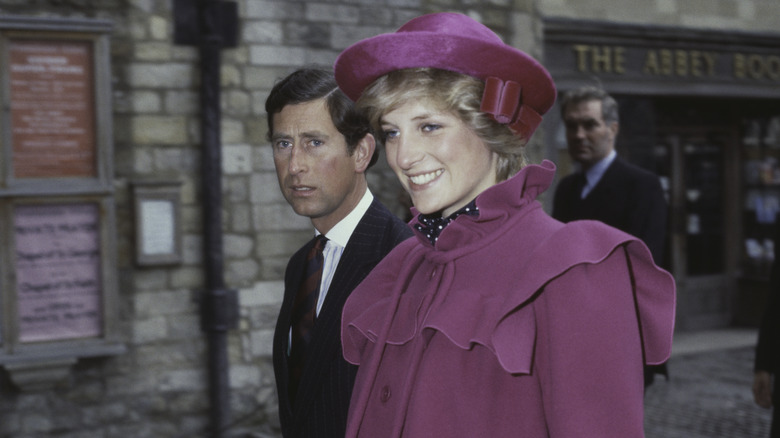What's Really Going On With The Martin Bashir And Princess Diana Interview Investigation?
The following article includes mentions of eating disorders.
Princess Diana shocked everyone, especially the royal family, when she opened up about her marriage in an unprecedented interview with BBC Panorama in 1995. But now questions have been raised about how journalist Martin Bashir secured the interview with the recently separated royal — and whether or not she was manipulated into taking part.
More than 20 million people around the world tuned in, per The Independent, to witness the bombshell revelations. Along with her infamous comment that "there were three of us in this marriage, so it was a bit crowded," in reference to her husband's adulterous relationship with Camilla Parker Bowles, Diana spoke about her struggles with mental health. The royal was shockingly honest about dealing with bulimia and self-harm while in the public eye. She also confessed to her own affair with James Hewitt and admitted that she was doubtful that Charles could ever "adapt" to being king.
Not long after the interview aired, the queen reportedly wrote to the estranged couple, ordering them to finally secure a formal divorce. And decades later, Diana's brother has accused the BBC of using unethical methods and misleading Diana in order to gain unprecedented access to scandalous royal secrets.
Martin Bashir reportedly misled the Spencers
Earl Spencer, the brother of Princess Diana, has claimed that Martin Bashir gained his trust by showing him "forged bank statements," according to the BBC. The fake paperwork appeared to prove that a former member of his household staff had been selling secrets to the press — and Bashir has admitted that they were created by one of the BBC's graphic artists.
In a letter obtained by the Daily Mail, the earl wrote that he "would not have introduced Bashir to my sister" if not for the statements. He has also alleged that Bashir lied to Diana herself, inventing stories about the royal family and members of her own staff. By presenting himself as a trustworthy confidant, the journalist was then able to secure the interview.
The BBC announced that the organization plans to look into Bashir's actions, although he has stepped away from his role as the BBC's religious affairs editor due to health reasons. Former senior judge Lord Dyson also evaluated why the initial investigation into the fake bank statements was shut down in 1996. Per The Guardian, Prince William showed his support for the independent enquiry at the time, calling it a "step in the right direction."
And now the report has been released, revealing an official judgement on whether the tactics behind the interview were covered up.
The BBC has apologized for its 'deceitful' methods
The long-awaited investigation into Panorama's 1995 interview with Princess Diana has concluded that journalist Martin Bashir used "deceitful" methods to get a face-to-face conversation.
As the BBC reported, Lord Dyson commented that the news corporation "fell short of the high standards of integrity and transparency which are its hallmark". The report also described Bashir's account of events as "incredible, unreliable, and in some cases dishonest." The BBC admitted that the report had proven "clear failings" and offered an apology over the matter, stating that they were "very sorry." In a statement to the PA news agency, Lord Hall, who was director of BBC news at the time, said that he was "wrong to give Martin Bashir the benefit of the doubt," and that he should have taken "further steps" following complaints.
Bashir has also responded to the report, per the BBC, clarifying that forging bank statements was "an action I deeply regret." The journalist apologize, but maintained that he felt the deceit had "no bearing whatsoever on the personal choice by Princess Diana to take part." Tim Davie, the BBC's current director general, added that the report showed that Diana was "keen on the idea of an interview," but that "the process for securing the interview fell far short of what audiences have a right to expect."
"While the BBC cannot turn back the clock after a quarter of a century, we can make a full and unconditional apology," he concluded. "The BBC offers that today."



